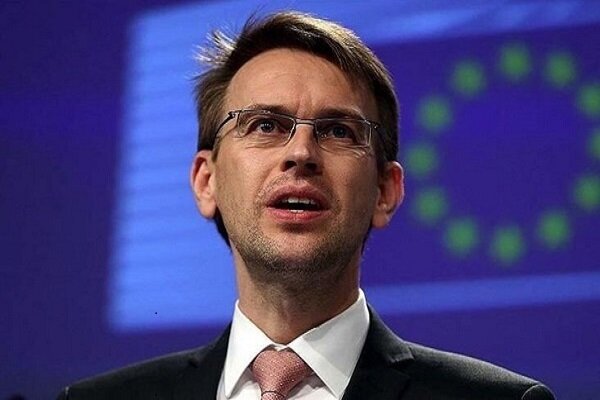The behavior and political approach of the Europeans towards Iran’s nuclear program and JCPOA is a contradictory and dual one. The history of Europe's approach to regional and global developments shows that Europeans can no longer be expected to do anything because it is believed that Europe has no political-economic independence in its decisions.
Various events in the region and the World have shown that Europeans, especially Britain, France, and Germany, prefer to follow the Americans rather than be independent in their decisions. When Trump unilaterally left the JCPOA and disrespected international law, the impression was created that Europe could create a new path in the UN Security Council. Of course, this was just an idea.
Of course, even if the US remained in JCPOA, it seemed unlikely that Washington would have adhered to its commitments.
After the withdrawal of the United States, the Europeans not only did not fulfill their obligations under the JCPOA and UN Security Council, but also failed to fulfill some minor commitments like INSTEX.
In a manner of demagoguery, Europeans sometimes took positions against Trump's policies to persuade Iran to continue to remain in JCPOA, but after Joe Biden won the US presidential election, the E3 returned to its previous positions.
To better analyze the attitude of Europeans towards Iran, Mehr News Agency conducted an interview with Peter Stano, lead Spokesperson for EU Foreign Affairs and Security Policy.
Below is the full interview:
EU foreign policy chief, Josep Borrell, stressed that EU remains intent on preserving the Iran nuclear deal but German Foreign Minister Heiko Maas recently said that the 2015 deal was no longer enough and a form of ‘nuclear agreement plus’s is needed, so how do you explain this duality?
There is no duality and the position of the EU (of which Germany is a member) is very clear. At the last Ministerial meeting of the JCPOA on 21 December all participants, including Germany, re-emphasized their commitment to preserve the agreement and stressed their respective efforts in this regard. Ministers also agreed to continue dialogue to ensure full JCPOA implementation by all sides. This was also reaffirmed by the EU27 Member States (including Germany) in their statement on 10 January, where the EU reiterated its strong commitment to and continued support for the Joint Comprehensive Plan of Action.
Mr. Maas said "we have clear expectations for Iran: no nuclear weapons, but also no ballistic rocket program which threatens the whole region. Iran must also play another role in the region.” Does the EU agree with Germany on these issues or not?
It is not the role of the EU to comment remarks and opinions of the representatives of individual EU member states. The position of the EU when it comes to Iran’s activities and nuclear deal was very clearly set out in the above mentioned statement of EU27 from 10 January.
E3 (UK, France and Germany) do not fulfill their commitments to JCPOA but they emphasize that Iran has to do commitments. Iranians have not a good experience of trusting Europeans so how do you evaluate this situation and how do you predict EU-Iran relation during Mr. Biden presidency?
On the bilateral relations between the EU and Iran – they do not depend on who sits in the White House in Washington. They depend on the level of commitment on both sides – in Iran and in the EU to develop them in a constructive way that benefits people on both sides and is based on values and principles. When it comes to the nuclear deal, the EU has upheld its JCPoA commitments, including regarding sanctions lifting as foreseen in the Agreement. Despite the severe challenges to the JCPoA, the EU has continued to work hard to preserve it. When the US left the JCPOA and unilaterally introduced sanctions the EU not only disagreed with it, the EU managed to prevent US efforts to reintroduce UN sanctions against Iran. To say, the EU did not meet its commitments is not correct, in fact it is not true. We have also designed the INSTEX mechanism to find a way how to enable legitimate trade with Iran despite the US sanctions.
During Trump Presidency EU and E3 emphasized maintaining JCPOA and opposing US acts against Iran but after Joe Biden won the elections, E3 changed its view on JCPOA and it seems they try to obtain new benefits, so is it right and how do you explain it?
This is again not correct, the EU remains committed to keep the nuclear deal alive, as stressed at the Ministerial Meeting of the JCPOA on 21 December and in the EU27 Declaration on 10 January.
The EU is committed to the JCPOA as an important piece of non-proliferation architecture and stability in the region. We need to find a way for the United States to re-join the Iran nuclear deal and for Iran to come back into full implementation. The EU and the United States should prioritise ways to ensure the deal is fully implemented by all, thus also rebuilding trust among all. Once this is achieved, we must be ready to build on this success and find ways to address further regional security concerns. The only long-term solution for the chronic instability is a regional solution.
Interview by Hamid Bayati
